Tag Archives: NOAA Fisheries
Massachusetts Restricted Area Wedge Closure to Trap/Pot Gear Upheld and Effective February 1 – Compliance Assistance Available
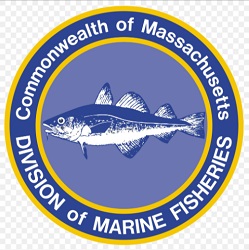 On January 30, 2025, the U.S. First Circuit Court of Appeals ruled that the final regulation amending the Atlantic Large Whale Take Reduction Plan (Plan) to expand the boundaries of the seasonal Massachusetts Restricted Area (MRA) to include the “Wedge”—that area of federal waters in Massachusetts Bay between state waters and the federal waters within the Massachusetts Restricted Area Wedge was lawful and may be enforced. Therefore, the Wedge is closed, effective February 1 2025, to the use of trap/pot gear (except the authorized use of on-demand gear by NOAA Fisheries) from February 1 through April 30. chart, more, >>CLICK TO READ<< 12:03
On January 30, 2025, the U.S. First Circuit Court of Appeals ruled that the final regulation amending the Atlantic Large Whale Take Reduction Plan (Plan) to expand the boundaries of the seasonal Massachusetts Restricted Area (MRA) to include the “Wedge”—that area of federal waters in Massachusetts Bay between state waters and the federal waters within the Massachusetts Restricted Area Wedge was lawful and may be enforced. Therefore, the Wedge is closed, effective February 1 2025, to the use of trap/pot gear (except the authorized use of on-demand gear by NOAA Fisheries) from February 1 through April 30. chart, more, >>CLICK TO READ<< 12:03
Researchers Are Finding Ash From Los Angeles Fires 100 Miles Out to Sea
 According to UC San Diego’s Scripps Institution of Oceanography and NOAA Fisheries’ Southwest Fisheries Science Center, billowing smoke from the Palisades, Eaton, and other fires has deposited ash and debris on the ocean’s surface as much as 100 miles from the coast. The crew aboard a NOAA research vessel called the Reuben Lasker was gathering water samples when the fires began. Over the next few days, they collected samples of the ash piling up on the deck of the ship, as well as in the sea. “We’re positioning ourselves to answer the question, ‘What does this mean for West Coast fisheries and the food web that we all depend on?’” said Nicolas Concha-Saiz, NOAA Fisheries’ chief scientist. more, >>CLICK TO READ<< 06:46
According to UC San Diego’s Scripps Institution of Oceanography and NOAA Fisheries’ Southwest Fisheries Science Center, billowing smoke from the Palisades, Eaton, and other fires has deposited ash and debris on the ocean’s surface as much as 100 miles from the coast. The crew aboard a NOAA research vessel called the Reuben Lasker was gathering water samples when the fires began. Over the next few days, they collected samples of the ash piling up on the deck of the ship, as well as in the sea. “We’re positioning ourselves to answer the question, ‘What does this mean for West Coast fisheries and the food web that we all depend on?’” said Nicolas Concha-Saiz, NOAA Fisheries’ chief scientist. more, >>CLICK TO READ<< 06:46
Young Salmon May Face Hungry New Competition from Juvenile Sablefish Along US Northwest Coast
 There is a new mouth to feed in the coastal waters of the Northwest where juvenile salmon first enter the ocean, and it’s a hungry one. Over the last two decades large numbers of juvenile sablefish have increasingly spread into coastal waters from central Oregon north to northern Washington. New research published in the journal Marine and Coastal Fisheries shows the influx follows the warming of ocean temperatures off the West Coast. It matches reports of fishing boats catching more small sablefish closer to shore. The finding means that salmon may face new competition from sablefish at a critical time in their life cycle, which is already at risk from climate change. Adult sablefish live for many years in deep offshore waters along the ocean floor. more, >>CLICK TO READ<< 08:49
There is a new mouth to feed in the coastal waters of the Northwest where juvenile salmon first enter the ocean, and it’s a hungry one. Over the last two decades large numbers of juvenile sablefish have increasingly spread into coastal waters from central Oregon north to northern Washington. New research published in the journal Marine and Coastal Fisheries shows the influx follows the warming of ocean temperatures off the West Coast. It matches reports of fishing boats catching more small sablefish closer to shore. The finding means that salmon may face new competition from sablefish at a critical time in their life cycle, which is already at risk from climate change. Adult sablefish live for many years in deep offshore waters along the ocean floor. more, >>CLICK TO READ<< 08:49
Framework 39 to determine access, fishing specifications for New Bedford scallopers in 2025/2026
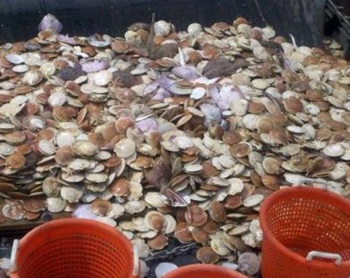 Scallop Framework 39 proposes 2025 fishing year specifications, 2026 default specifications, revisions to seasonal bycatch closures to improve scallop yield, and measures to allow Northern Gulf of Maine (NGOM) permit holders fishing on directed scallop trips in the NGOM Management Area to possess scallops south of 42° 20′. “The New England Fishery Management Council took final action on Framework Adjustment 39 to the Atlantic Sea Scallop Fishery Management Plan when it met December 3-5, 2024 in Newport, Rhode Island. The framework contains specifications and measures to guide the 2025 scallop fishing year, which begins on April 1. The action also includes default measures for fishing year 2026. The framework must be reviewed, approved, and implemented by NOAA Fisheries before taking effect. Here are the Council’s recommended measures: charts, graphs, more, >>CLICK TO READ<< 10:49
Scallop Framework 39 proposes 2025 fishing year specifications, 2026 default specifications, revisions to seasonal bycatch closures to improve scallop yield, and measures to allow Northern Gulf of Maine (NGOM) permit holders fishing on directed scallop trips in the NGOM Management Area to possess scallops south of 42° 20′. “The New England Fishery Management Council took final action on Framework Adjustment 39 to the Atlantic Sea Scallop Fishery Management Plan when it met December 3-5, 2024 in Newport, Rhode Island. The framework contains specifications and measures to guide the 2025 scallop fishing year, which begins on April 1. The action also includes default measures for fishing year 2026. The framework must be reviewed, approved, and implemented by NOAA Fisheries before taking effect. Here are the Council’s recommended measures: charts, graphs, more, >>CLICK TO READ<< 10:49
Trawl developed for research survey work
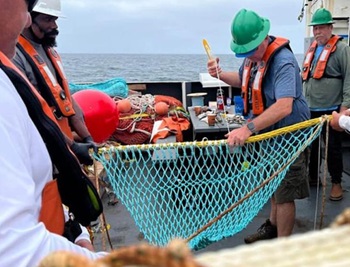 NOAA Fisheries’ surveys off the US West Coast have begun deploying a new trawl net specifically designed to catch multiple fish species at different depths. Scientists are looking at integrating two fisheries surveys into one. Such a net is expected to save time and money in the long term and improve data collection for managing West Coast fisheries. NOAA Fisheries’ scientists collaborated with fishing industry experts from Ocean Gold Seafoods and Seattle-based net manufacturer Swan Nets. They designed gear that improves trawling efficiency and flexibility, called the Multi-Function Trawl net. It enables trawling at or near the surface – such as for sardines and anchovies – at night. It also allows for trawling in midwater depths, such as for Pacific hake, during the day. NOAA Fisheries previously dedicated two surveys on separate vessels to assess these species, each using a different style of trawl net configuration at different depths. In late 2023, and continuing this past summer, NOAA Fisheries’ scientists, crew, and fishing industry experts conducted sea trials using the net. They observed the net’s performance and fine-tuned the various deployment configurations. Photos, more, >>CLICK TO READ<< 12:08
NOAA Fisheries’ surveys off the US West Coast have begun deploying a new trawl net specifically designed to catch multiple fish species at different depths. Scientists are looking at integrating two fisheries surveys into one. Such a net is expected to save time and money in the long term and improve data collection for managing West Coast fisheries. NOAA Fisheries’ scientists collaborated with fishing industry experts from Ocean Gold Seafoods and Seattle-based net manufacturer Swan Nets. They designed gear that improves trawling efficiency and flexibility, called the Multi-Function Trawl net. It enables trawling at or near the surface – such as for sardines and anchovies – at night. It also allows for trawling in midwater depths, such as for Pacific hake, during the day. NOAA Fisheries previously dedicated two surveys on separate vessels to assess these species, each using a different style of trawl net configuration at different depths. In late 2023, and continuing this past summer, NOAA Fisheries’ scientists, crew, and fishing industry experts conducted sea trials using the net. They observed the net’s performance and fine-tuned the various deployment configurations. Photos, more, >>CLICK TO READ<< 12:08
NOAA Fisheries Announces Closure of Commercial Atlantic Mackerel Fishery
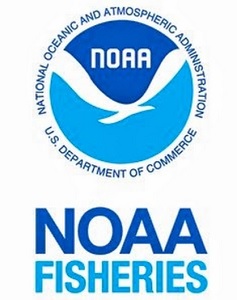 NOAA Fisheries has projected that 80 percent of the Atlantic mackerel domestic annual harvest (DAH) was harvested by November 29, 2024. Therefore, effective 0001 local time on December 6, 2024, limited access mackerel vessels may not take and retain, possess, or land more than 10,000 lb of mackerel per trip at any time, and may only land mackerel once per calendar day, through 24:00 hr local time on December 31, 2024. Additionally, open access mackerel vessels may not take and retain, possess, or land more than 2,500 lb. of mackerel per trip at any time, and may only land mackerel once per calendar day, through 24:00 hr local time on December 31, 2024. more, >>CLICK TO READ<< 14:12
NOAA Fisheries has projected that 80 percent of the Atlantic mackerel domestic annual harvest (DAH) was harvested by November 29, 2024. Therefore, effective 0001 local time on December 6, 2024, limited access mackerel vessels may not take and retain, possess, or land more than 10,000 lb of mackerel per trip at any time, and may only land mackerel once per calendar day, through 24:00 hr local time on December 31, 2024. Additionally, open access mackerel vessels may not take and retain, possess, or land more than 2,500 lb. of mackerel per trip at any time, and may only land mackerel once per calendar day, through 24:00 hr local time on December 31, 2024. more, >>CLICK TO READ<< 14:12
Fishermen celebrate Trump: ‘Government has crucified this industry’
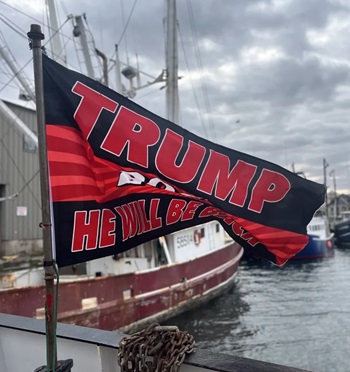 He didn’t win New Bedford, where Vice President Kamala Harris held a margin of 2,688 votes. But the city’s fishermen have dug in with their support for the president-elect. Fishermen on the New Bedford waterfront met the news of a second Trump term with vengeful enthusiasm on Wednesday morning. There was hope that the president-elect would scale back regulation, stop offshore wind development and open new fishing grounds, breaking the slump of declining revenues and ushering in a period of relative prosperity for the industry. “The government has crucified this industry,” said Ryan Turner, 47, who on Wednesday morning was preparing to leave on a scallop trip. He said this election was the first in which he had ever cast his vote. Between Harris and Trump, he said, “I didn’t like either one. I voted because we needed someone in office who is going to get rid of these windmills.” more, >>CLICK TO READ<< 18:17
He didn’t win New Bedford, where Vice President Kamala Harris held a margin of 2,688 votes. But the city’s fishermen have dug in with their support for the president-elect. Fishermen on the New Bedford waterfront met the news of a second Trump term with vengeful enthusiasm on Wednesday morning. There was hope that the president-elect would scale back regulation, stop offshore wind development and open new fishing grounds, breaking the slump of declining revenues and ushering in a period of relative prosperity for the industry. “The government has crucified this industry,” said Ryan Turner, 47, who on Wednesday morning was preparing to leave on a scallop trip. He said this election was the first in which he had ever cast his vote. Between Harris and Trump, he said, “I didn’t like either one. I voted because we needed someone in office who is going to get rid of these windmills.” more, >>CLICK TO READ<< 18:17
“A Total Shock” – Japanese Sardines Detected in U.S. Waters
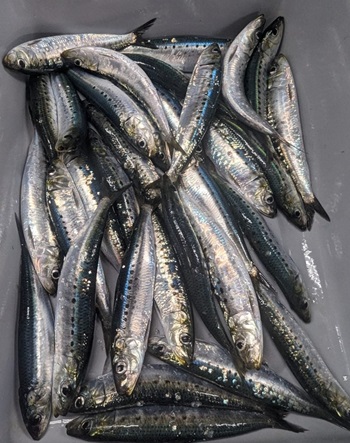 Genomic sequencing of Pacific sardines in 2022 and 2023 uncovered the presence of not just one, but two distinct sardine species in the California Current. When research scientist Gary Longo first reviewed the results of his genomic analysis of sardines, he thought he must have mixed up his samples. Besides the Pacific sardines common on the West Coast, many of the fish appeared to be another species. “It was a total shock,” he said. Then he compared their genetic code to other known species. “That was the ‘aha moment’ when we realized we were looking at a second species of sardine.” The analysis shows that of the 345 sardine samples collected during NOAA Fisheries’ 2021 and 2022 Coastal Pelagic Species Surveys, all of the fish in 2021 were Pacific sardines, but those collected in 2022 were a mix of Pacific sardines and Japanese sardines. more, >>CLICK TO READ<< 10:50
Genomic sequencing of Pacific sardines in 2022 and 2023 uncovered the presence of not just one, but two distinct sardine species in the California Current. When research scientist Gary Longo first reviewed the results of his genomic analysis of sardines, he thought he must have mixed up his samples. Besides the Pacific sardines common on the West Coast, many of the fish appeared to be another species. “It was a total shock,” he said. Then he compared their genetic code to other known species. “That was the ‘aha moment’ when we realized we were looking at a second species of sardine.” The analysis shows that of the 345 sardine samples collected during NOAA Fisheries’ 2021 and 2022 Coastal Pelagic Species Surveys, all of the fish in 2021 were Pacific sardines, but those collected in 2022 were a mix of Pacific sardines and Japanese sardines. more, >>CLICK TO READ<< 10:50
2024 Sea Scallop Survey Results – Long-Running Sea Scallop Survey Diversifies for the Future
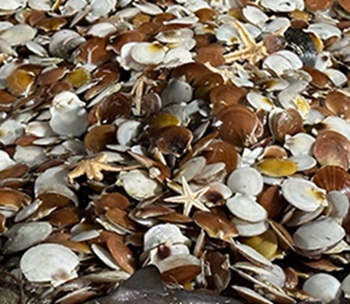 Among the highlights of our 2024 Integrated Sea Scallop and HabCam Research Survey are strong numbers of two-year-old scallops observed in both dredge samples and HabCam images. These were found in the southern part of the Great South Channel, the eastern portion of the Nantucket Lightship Area, the northern portion of Closed Area I, and in the Elephant Trunk and Hudson Canyon South areas in the Mid-Atlantic. Sea scallops typically reach harvestable size at about age 4 and older. This is also the first survey that included three cruises, exclusively used a commercial vessel for dredging, and deployed a long-range autonomous underwater vehicle (LRAUV). Photos, charts, more, >>CLICK TO READ<< 10:06
Among the highlights of our 2024 Integrated Sea Scallop and HabCam Research Survey are strong numbers of two-year-old scallops observed in both dredge samples and HabCam images. These were found in the southern part of the Great South Channel, the eastern portion of the Nantucket Lightship Area, the northern portion of Closed Area I, and in the Elephant Trunk and Hudson Canyon South areas in the Mid-Atlantic. Sea scallops typically reach harvestable size at about age 4 and older. This is also the first survey that included three cruises, exclusively used a commercial vessel for dredging, and deployed a long-range autonomous underwater vehicle (LRAUV). Photos, charts, more, >>CLICK TO READ<< 10:06
Long-Running Sea Scallop Survey Diversifies for the Future – >>CLICK TO READ<<
Coast Guard halts voyage for illegal fishing off Key West
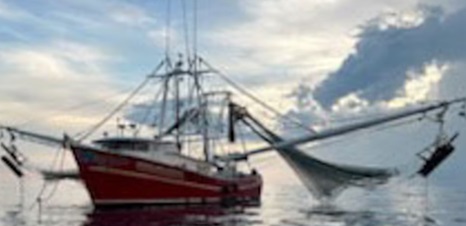 A Coast Guard Station Key West law enforcement boat crew boarded a commercial fishing vessel, Thursday, approximately 12 miles off the Marquesas Keys, for a routine commercial fishing vessel safety inspection and discovered the crew was fishing with an expired permit. Working with our National Marine Fisheries Service regional partners, the Coast Guard terminated the vessel’s voyage due to their possession of 45,000 pounds of pink shrimp on board without a valid commercial fishing permit. The vessel is returning to its homeport in Alabama where NMFS officers will meet with captain for further questioning. The name of the vessel is being withheld due to the open investigation. more, >>CLICK TO READ<< 13:53
A Coast Guard Station Key West law enforcement boat crew boarded a commercial fishing vessel, Thursday, approximately 12 miles off the Marquesas Keys, for a routine commercial fishing vessel safety inspection and discovered the crew was fishing with an expired permit. Working with our National Marine Fisheries Service regional partners, the Coast Guard terminated the vessel’s voyage due to their possession of 45,000 pounds of pink shrimp on board without a valid commercial fishing permit. The vessel is returning to its homeport in Alabama where NMFS officers will meet with captain for further questioning. The name of the vessel is being withheld due to the open investigation. more, >>CLICK TO READ<< 13:53
Maine Lobstermen’s Association letter to ASMFC reiterates its call to delay any gauge increase
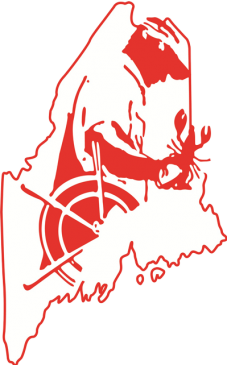 Dear Ms. Starks: The Maine Lobstermen’s Association (MLA) strongly supports the Atlantic States Marine Fisheries Commission’s (ASMFC) recommendation to NOAA Fisheries proposed in Addendum XXX “that as changes to the minimum gauge size in LCMA 1 are required by Addendum XXVII, the smallest minimum size for foreign imports would match the smallest minimum size in effect for the US industry.” MLA has raised concern with ASMFC through previous comments and letters that the lack of clarity in Addendum XXVII regarding the import of undersize lobster from Canada smaller than the minimum possession size has created significant confusion and angst amongst Maine lobstermen who worry that the import these lobsters would have a significant negative impact on the U.S. boat price. more, >>CLICK TO READ<< 14:06
Dear Ms. Starks: The Maine Lobstermen’s Association (MLA) strongly supports the Atlantic States Marine Fisheries Commission’s (ASMFC) recommendation to NOAA Fisheries proposed in Addendum XXX “that as changes to the minimum gauge size in LCMA 1 are required by Addendum XXVII, the smallest minimum size for foreign imports would match the smallest minimum size in effect for the US industry.” MLA has raised concern with ASMFC through previous comments and letters that the lack of clarity in Addendum XXVII regarding the import of undersize lobster from Canada smaller than the minimum possession size has created significant confusion and angst amongst Maine lobstermen who worry that the import these lobsters would have a significant negative impact on the U.S. boat price. more, >>CLICK TO READ<< 14:06
ICCAT North Atlantic Swordfish Stakeholder Engagement Session
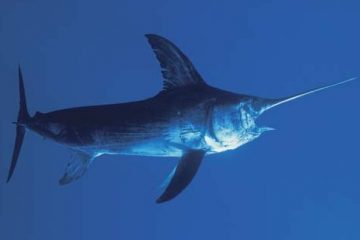 The Advisory Committee to the U.S. Section to ICCAT is holding a public meeting via webinar session to receive an update and provide input on the development of a management strategy evaluation (MSE) for North Atlantic swordfish. The meeting is open to all interested stakeholders. The virtual meeting will be held by webinar session on June 13, 2024, from 10 a.m. to 12 p.m. EDT. Please register to attend, >>CLICK TO READ<< 12:51
The Advisory Committee to the U.S. Section to ICCAT is holding a public meeting via webinar session to receive an update and provide input on the development of a management strategy evaluation (MSE) for North Atlantic swordfish. The meeting is open to all interested stakeholders. The virtual meeting will be held by webinar session on June 13, 2024, from 10 a.m. to 12 p.m. EDT. Please register to attend, >>CLICK TO READ<< 12:51
Updated Reports Available on Fishery and Port Impacts Associated with Offshore Wind Development Along the U.S. Atlantic Coast
 NOAA Fisheries updated and expanded existing analyses and reports to help the public better understand the impacts of offshore wind development on commercial and recreational fisheries along the U.S. Atlantic Coast. The new reports build upon the previously developed analyses, but now include updated data and additional analysis on impacts to ports and cumulative impacts from all Greater Atlantic offshore wind lease areas combined. We added 2022 fishery data to both commercial and party/charter impact summaries for each lease area and, for some approved projects, finalized export cable corridors, as reported by BOEM’s GIS website. more, >>CLICK TO READ<< 17:53
NOAA Fisheries updated and expanded existing analyses and reports to help the public better understand the impacts of offshore wind development on commercial and recreational fisheries along the U.S. Atlantic Coast. The new reports build upon the previously developed analyses, but now include updated data and additional analysis on impacts to ports and cumulative impacts from all Greater Atlantic offshore wind lease areas combined. We added 2022 fishery data to both commercial and party/charter impact summaries for each lease area and, for some approved projects, finalized export cable corridors, as reported by BOEM’s GIS website. more, >>CLICK TO READ<< 17:53
NOAA Fisheries Denies Request for Emergency Action on Bering Sea Chinook Salmon Bycatch
 NOAA Fisheries denied a request for emergency action to institute a cap of zero on Chinook salmon bycatch in the Bering Sea pollock fishery. The request was submitted on January 17, 2024. It effectively asked Secretary of Commerce Gina Raimondo to close the Bering Sea pollock fishery, which opened on January 20, 2024. It was submitted by: Association of Village Council Presidents, Kuskokwim River Inter-Tribal Fish Commission, Tanana Chiefs Conference, Yukon River Drainage Fisheries Association, Yukon River Inter-Tribal Fish Commission. The petition also requested that the Department of Commerce urge the North Pacific Fishery Management Council to evaluate and update current Chinook salmon bycatch management. more, >>CLICK TO READ<< 13:08
NOAA Fisheries denied a request for emergency action to institute a cap of zero on Chinook salmon bycatch in the Bering Sea pollock fishery. The request was submitted on January 17, 2024. It effectively asked Secretary of Commerce Gina Raimondo to close the Bering Sea pollock fishery, which opened on January 20, 2024. It was submitted by: Association of Village Council Presidents, Kuskokwim River Inter-Tribal Fish Commission, Tanana Chiefs Conference, Yukon River Drainage Fisheries Association, Yukon River Inter-Tribal Fish Commission. The petition also requested that the Department of Commerce urge the North Pacific Fishery Management Council to evaluate and update current Chinook salmon bycatch management. more, >>CLICK TO READ<< 13:08
Overspreading Since the Seventies
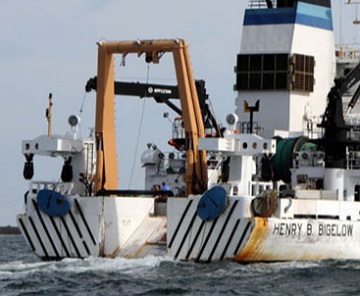 NOAA Fisheries has been overspreading their nets since they changed from a side trawler to stern trawler back in the 1970s! On the Delaware side trawler, the wires were put together on the side of the boat and on NOAA’s Stern Trawler Bigelow, the wires are off the stern of the boat which is 32 feet apart. This is causing NOAA’s over-spread nets. Now NOAA has been working with a restrictor-rope on the doors, to stop the doors from over spreading the nets. more, >>click to read<< By Rocky Novello
NOAA Fisheries has been overspreading their nets since they changed from a side trawler to stern trawler back in the 1970s! On the Delaware side trawler, the wires were put together on the side of the boat and on NOAA’s Stern Trawler Bigelow, the wires are off the stern of the boat which is 32 feet apart. This is causing NOAA’s over-spread nets. Now NOAA has been working with a restrictor-rope on the doors, to stop the doors from over spreading the nets. more, >>click to read<< By Rocky Novello
Aquarium scientists ID dead whale found on Martha’s Vineyard
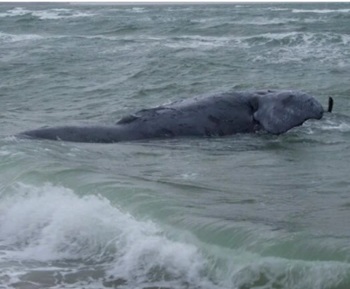 Scientists identified the dead North Atlantic right whale as a 3-year-old female known as #5120. NOAA Fisheries learned that the unnamed whale had washed ashore near Joseph Sylvia State Beach on Martha’s Vineyard on Jan. 28. The animal will undergo a necropsy this week to determine its exact cause of death. The Wampanoag Tribe of Gay Head (Aquinnah) and the International Fund for Animal Welfare secured the whale, according to the aquarium. State law enforcement officials also collected rope entangled around and embedded in the whale’s tail and turned it over to NOAA’s Office of Law Enforcement. In August 2022, researchers found the whale tangled up in fishing gear in the Gulf of St. Lawrence, Canada. Several attempts were made in January and February of 2023 to disentangle the whale after she was located off Cape Cod. more, >>click to read<< 13:01
Scientists identified the dead North Atlantic right whale as a 3-year-old female known as #5120. NOAA Fisheries learned that the unnamed whale had washed ashore near Joseph Sylvia State Beach on Martha’s Vineyard on Jan. 28. The animal will undergo a necropsy this week to determine its exact cause of death. The Wampanoag Tribe of Gay Head (Aquinnah) and the International Fund for Animal Welfare secured the whale, according to the aquarium. State law enforcement officials also collected rope entangled around and embedded in the whale’s tail and turned it over to NOAA’s Office of Law Enforcement. In August 2022, researchers found the whale tangled up in fishing gear in the Gulf of St. Lawrence, Canada. Several attempts were made in January and February of 2023 to disentangle the whale after she was located off Cape Cod. more, >>click to read<< 13:01
NOAA confirms 67 large whale entanglements nationally in 2022 – none involving the North Atlantic right whale
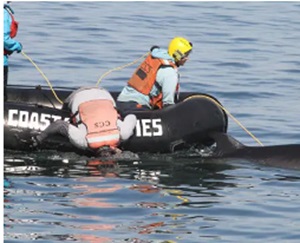 NOAA Fisheries has released the National Report on Large Whale Entanglements Confirmed in the United States in 2022. In 2022, there were 67 large whale entanglement cases – a slight decrease from 2021 and slightly below the historical average. The majority involved humpback whales and there were no confirmed entanglement cases with the endangered North Atlantic right whale. Over 85 percent of all confirmed live whale entanglement reports were observed off the coast of four states: California (34.3 percent), Massachusetts (20.9 percent), Alaska (14.9 percent) and Hawaii (14.9 percent). links, more, >>click to read<< 09:15
NOAA Fisheries has released the National Report on Large Whale Entanglements Confirmed in the United States in 2022. In 2022, there were 67 large whale entanglement cases – a slight decrease from 2021 and slightly below the historical average. The majority involved humpback whales and there were no confirmed entanglement cases with the endangered North Atlantic right whale. Over 85 percent of all confirmed live whale entanglement reports were observed off the coast of four states: California (34.3 percent), Massachusetts (20.9 percent), Alaska (14.9 percent) and Hawaii (14.9 percent). links, more, >>click to read<< 09:15
Final Incidental Take Regulations for the Coastal Virginia Offshore Wind Commercial (CVOW-C) Project, Offshore Virginia
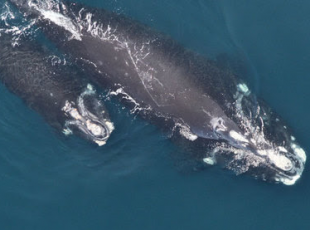 On Monday, January 22, 2024, NOAA Fisheries published the final incidental take regulations related to Dominion Energy’s Coastal Virginia Offshore Wind Commercial (CVOW-C) Project. The effective dates for these regulations are February 5, 2024 through February 4, 2029. Pursuant to the Marine Mammal Protection Act, these regulations will govern the “take” of small numbers of marine mammals exposed to elevated underwater noise generated by the project’s activities over a five-year period. NOAA Fisheries has determined the take that may be authorized under the final rule will have a negligible impact on all affected marine mammal species and stocks. more, >>click to read<< 14:50
On Monday, January 22, 2024, NOAA Fisheries published the final incidental take regulations related to Dominion Energy’s Coastal Virginia Offshore Wind Commercial (CVOW-C) Project. The effective dates for these regulations are February 5, 2024 through February 4, 2029. Pursuant to the Marine Mammal Protection Act, these regulations will govern the “take” of small numbers of marine mammals exposed to elevated underwater noise generated by the project’s activities over a five-year period. NOAA Fisheries has determined the take that may be authorized under the final rule will have a negligible impact on all affected marine mammal species and stocks. more, >>click to read<< 14:50
NOAA Fisheries Extends Emergency Measures for Gulf of Maine Haddock Quota through Remainder of Fishing Year 2023
 Effective January 9, 2024 – At the New England Fishery Management Council’s request, NOAA Fisheries took emergency action to increase the Gulf of Maine (GOM) haddock acceptable biological catch (ABC) for the 2023 fishing year. NOAA Fisheries increased the fishing year 2023 ABC to the fishing mortality associated with the maximum sustainable yield (FMSY) (2,515 mt). The emergency measures were included in the final rule for Framework Adjustment 65 (88 FR 56527; August 18, 2023). The emergency measures will expire on February 14, 2024, under the Magnuson-Stevens Act’s initial 180-day limit on the duration of an emergency action. more, links, >>click to read<< 19:40
Effective January 9, 2024 – At the New England Fishery Management Council’s request, NOAA Fisheries took emergency action to increase the Gulf of Maine (GOM) haddock acceptable biological catch (ABC) for the 2023 fishing year. NOAA Fisheries increased the fishing year 2023 ABC to the fishing mortality associated with the maximum sustainable yield (FMSY) (2,515 mt). The emergency measures were included in the final rule for Framework Adjustment 65 (88 FR 56527; August 18, 2023). The emergency measures will expire on February 14, 2024, under the Magnuson-Stevens Act’s initial 180-day limit on the duration of an emergency action. more, links, >>click to read<< 19:40
Ecosystem reports show continuing effects of warming in Alaska’s marine waters
 The waters off Alaska’s Aleutian Islands registered the warmest winter temperatures in over a century, part of a decade-long period of warming, according to a report issued by the National Oceanic and Atmospheric Administration. The Aleutians report is one of three annual ecosystem status reports issued by NOAA Fisheries for marine areas of Alaska. The reports, compiled by large teams of scientists, were released earlier this month and presented to the North Pacific Fishery Management Council, the panel that sets regulated commercial fishing in federal waters off Alaska. The Bering Sea remains warmer than the long-term average, though it has cooled since the heatwaves, NOAA Fisheries biologist Elizabeth Siddon told the North Pacific Fishery Management Council in her presentation of the report. more, >>click to read<< 07:53
The waters off Alaska’s Aleutian Islands registered the warmest winter temperatures in over a century, part of a decade-long period of warming, according to a report issued by the National Oceanic and Atmospheric Administration. The Aleutians report is one of three annual ecosystem status reports issued by NOAA Fisheries for marine areas of Alaska. The reports, compiled by large teams of scientists, were released earlier this month and presented to the North Pacific Fishery Management Council, the panel that sets regulated commercial fishing in federal waters off Alaska. The Bering Sea remains warmer than the long-term average, though it has cooled since the heatwaves, NOAA Fisheries biologist Elizabeth Siddon told the North Pacific Fishery Management Council in her presentation of the report. more, >>click to read<< 07:53
NOAA Fisheries Approves Adjustments to Fishing Year 2023 Specifications for the Northeast Multispecies Fishery Management Plan
 Each year, NOAA Fisheries determines how much unused quota sectors may carry over from the previous fishing year based on final catch data. Today, we are announcing, through a final rule, the amount of allocation each sector may carry over from the 2022 to 2023 fishing year, which ends April 30, 2024. For details, including tables presenting the carryover allocations, see the rule as filed in the Federal Register. Questions? Fishermen: Liz Sullivan, Regional Office, (978) 282-8493. Media: Contact GARFO Public Affairs 15:09
Each year, NOAA Fisheries determines how much unused quota sectors may carry over from the previous fishing year based on final catch data. Today, we are announcing, through a final rule, the amount of allocation each sector may carry over from the 2022 to 2023 fishing year, which ends April 30, 2024. For details, including tables presenting the carryover allocations, see the rule as filed in the Federal Register. Questions? Fishermen: Liz Sullivan, Regional Office, (978) 282-8493. Media: Contact GARFO Public Affairs 15:09

Misinformation: Offshore wind isn’t killing whales. Big oil and gas just want you to think it is.
While ocean conservation organizations and scientists are raising the alarm about how climate change is harming whales, lobbyist groups, online news outlets, and conservative representatives have found a convenient scapegoat for these whale deaths: offshore wind farms. Self-styled “grassroots” groups like Protect Our Coast New Jersey, Save Our Beach View, Nantucket Residents Against Turbines, and the American Coalition for Ocean Protection claim that the technology used in the surveying phase of offshore wind farm development is killing whales — without any supporting evidence. Indeed, representatives from NOAA Fisheries, a bioacoustics expert at the University of Southern Denmark, and scientists at the Bureau of Ocean Energy Management are all on the record stating that there are no known ties between offshore wind and whale deaths. >click to read< 15:29

Celebrate Whale Week with NOAA Fisheries: A message from Janet Coit, Assistant Administrator
At NOAA Fisheries, our team of dedicated scientists and managers is responsible for the health and sustainability of more than 30 whale species in U.S and territorial waters. Every year, we spend a week taking a deeper dive to share our whale expertise. This year is particularly notable because it is the 50th anniversary of the Endangered Species Act. Some of the most recognizable whales—North Atlantic right whales, Southern Resident killer whales, and Cook Inlet belugas—are at the top of our Species in the Spotlight initiative. >click to read< 18:33

Claims about offshore wind farms killing whales are unsubstantiated, scientists say
Since December, more than 23 whales have washed up dead along the east coast of the United States, leading wind energy skeptics to lay blame on the pending installation of offshore wind projects. But some scientists with the federal government say that there is no evidence to support those claims. Last year, the Biden administration sold six leases to produce wind from turbines off the mid-Atlantic coast, part of its effort to fight climate change by boosting production of clean, renewable energy. Some pundits and politicians have concluded that preconstruction activity on new wind turbines has resulted in an increase in the death of whales. Clean Ocean Action has joined Republican New Jersey Reps. Chris Smith and Jeff Van Drew to demand a suspension of wind development. >click to read< 11:32

Feds push ignorance defense for whale killing by offshore wind development
The Bureau of Ocean Energy Management and the NOAA Fisheries agency have both put out what amount to “arguments from ignorance” claiming that offshore wind development has nothing to do with the recent whale deaths. “We know nothing about it so it must not be happening” is a ridiculous defense to the charge of offshore wind development causing the death of a lot of whales. But this is exactly what the Feds are now saying. NOAA Fisheries is a scientific agency and their version is more scientific, which is important because this is really a scientific issue. Let us look at their arguments. >click to read< 17:38
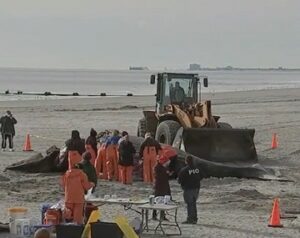
Another dead whale washes up on Jersey Shore beach
A third humpback whale in about a month washed up at the Jersey Shore over the weekend, concerning both residents and conservationists. Atlantic City officials say the 30-foot adult humpback whale was discovered on the beach near South Mississippi Avenue Saturday, only a few blocks from where another whale washed ashore on Christmas weekend Spectators watched as scientists began a necropsy on Sunday. Some protesters on the beach Sunday speculate an offshore wind turbine project may have something to do with this. “We’ve never had this number of whale deaths and beaching’s ever as far as I recall,” said Frank Leone from Protect our Coast New Jersey. Video, >click to read< 13:29
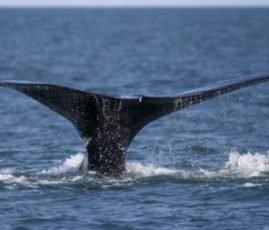
Federal court rules fisheries officials didn’t do enough to protect right whales from lobster gear
A federal court on Friday ruled in favor of environmental groups that had filed a lawsuit against the government and the Maine Lobstermen’s Association claiming federal fisheries officials had failed to protect endangered North Atlantic right whales from potentially fatal entanglements in lobster fishing gear, records show. A judge ruled that NOAA Fisheries had violated the Marine Mammal Protection Act and Endangered Species Act when it issued a May 2021 biological opinion and a September 2021 final rule because officials had not done enough to reduce the lobster fishery’s threat to right whales, the plaintiffs in the suit said in a statement. >click to read< 18:00

Gulf Coast Seafood Alliance Supports Lawsuit Challenging Unlawful Red Grouper Quotas
Commercial fishermen and members of the Gulf of Mexico seafood industry have filed a lawsuit challenging the legality of a recent decision by NOAA Fisheries to reallocate red grouper quota to recreational fishermen at the expense of the commercial fishery. The Gulf Coast Seafood Alliance supports the efforts by the Gulf of Mexico Reef Fish Shareholders’ Alliance, Southern Offshore Fishing Association, and A.P. Bell Fish Company to challenge this decision, in an effort to restore a fair allocation for commercial fishermen. The lawsuit, filed late on Friday in the U.S. District Court for the District of Columbia, challenges recent red grouper allocations approved by NOAA as part of Amendment 53 to the Fishery Management Plan for the Reef Fish Resources of the Gulf of Mexico. >click to read< 16:16




































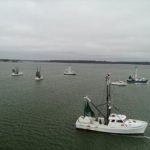





NOAA Seeks Public Comments on Exempted Fishing Permit Application for an On-Demand Trap/Pot/Gillnet Gear Study
Share this post